Engineering as
a Global Profession
For Deb: my lawyer wife, an engineers daughter,
and early supporter of this work
Engineering as
a Global Profession
Technical and Ethical Standards
Michael Davis
ROWMAN & LITTLEFIELD
Lanham Boulder New York London
Published by Rowman & Littlefield
An imprint of The Rowman & Littlefield Publishing Group, Inc.
4501 Forbes Boulevard, Suite 200, Lanham, Maryland 20706
www.rowman.com
Selection, Editorial Matter, Preface, and Chapter 20 Copyright 2021 by The Rowman & Littlefield Publishing Group, Inc.
All rights reserved . No part of this book may be reproduced in any form or by any electronic or mechanical means, including information storage and retrieval systems, without written permission from the publisher, except by a reviewer who may quote passages in a review.
British Library Cataloguing in Publication Information Available
Library of Congress Cataloging-in-Publication Data
Names: Davis, Michael, 1943 author.
Title: Engineering as a global profession : technical and ethical standards / Michael Davis.
Description: Lanham : Rowman & Littlefield, [2021] | Includes bibliographical references and index.
Identifiers: LCCN 2021030026 (print) | LCCN 2021030027 (ebook) | ISBN 9781538155042 (cloth) | ISBN 9781538155059 (epub)
Subjects: LCSH: Engineering ethics. | EngineeringVocational guidance.
Classification: LCC TA157 .D3196 2021 (print) | LCC TA157 (ebook) | DDC 620.0023dc23
LC record available at https://lccn.loc.gov/2021030026
LC ebook record available at https://lccn.loc.gov/2021030027
 The paper used in this publication meets the minimum requirements of American National Standard for Information SciencesPermanence of Paper for Printed Library Materials, ANSI/NISO Z39.48-1992.
The paper used in this publication meets the minimum requirements of American National Standard for Information SciencesPermanence of Paper for Printed Library Materials, ANSI/NISO Z39.48-1992.
Contents
This volume contains the following previously published material:
Chapter 1. Reprinted/adapted by permission from Springer Nature Customer Service Centre GmbH: Springer Nature, Philosophia 37, 211225. Davis, Michael, Is Engineering a Profession Everywhere? June 2009.
Chapter 2. Davis, Michael. Defining EngineeringFrom Chicago to Shantou, Monist 92, 3 (July 2009): 325339 by permission of Oxford University Press.
Chapter 3. Reprinted/adapted by permission from Springer Nature Customer Service Centre GmbH: Springer Nature, Davis, Michael, Distinguishing Architects from Engineers: A Pilot Study in Differences between Engineers and other Technologists, in Philosophy and Engineering: An Emerging Agenda , edited by Ibo van de Poel and David Goldberg, 1530 2010.
Chapter 4. Davis, Michael. "Do the Professional Ethics of Chemists and Engineers Differ?" HYLE 8 (Spring 2002): 2134.
Chapter 5. Davis, Michael. Will Software Engineering Ever Be Engineering? Communications of the ACM 54 (November 2011): 3234.
Chapter 6. Reprinted/adapted by permission from Springer Nature Customer Service Centre GmbH: Springer Nature, Davis, Michael, Engineers and Business Managers: The Odd Couple, in The Engineering-Business Nexus Symbiosis, Tension and Co-Evolution , edited by Steen Hyldgaard Christensen et al. Philosophy of Engineering and Technology, v. 32, 2538 2019.
Chapter 7. Reprinted/adapted by permission from Springer Nature Customer Service Centre GmbH: Springer Science + Business Media B.V, Davis, Michael, Engineering as Profession: Some Methodological Problems in its Study, pp. 6579 in Engineering, Development and Philosophy: American, Chinese, and European Perspectives , edited by Steen Hyldgaard Christensen, et al. 2015.
Chapter 8. Davis, Michael. Profession as a Lens for Studying Technology, in Methods for the Ethics of Technology , edited by Sven-Ove Hansson, 8396. London: Rowman and Littlefield International, 2016.
Chapter 9. Reprinted/adapted by permission from Springer Nature Customer Service Centre GmbH: Springer Nature, Science and Engineering Ethics 18, 1334. Davis, Michael, Aint no one here but us social forces: Constructing the professional responsibility of engineers Winter 2012.
Chapter 10. Reprinted/adapted by permission from Springer Nature Customer Service Centre GmbH: Springer Nature, Science and Engineering Ethics 12, 223231. Davis, Michael, Engineering Ethics, Individuals, and Organizations April 2006.
Chapter 11. Davis, Michael. Social Responsibility and Social Justice for Engineers? Engineering Dimensions (March/April 2013): 3941.
Chapter 12. Davis, Michael. Engineers and Sustainability: An Inquiry into the elusive distinction between Macro-, Micro-, and Meso-Ethics, Journal of Applied Ethics and Philosophy 2 (2010): 1220.
Chapter 13. Reprinted/adapted by permission from Springer Nature Customer Service Centre GmbH: Springer Nature, Science and Engineering Ethics 7, 283. Davis, Michael, Case Study in Engineering Ethics'Doing the Minimum' April 2001.
Chapter 14. Reprinted/adapted by permission from Springer Nature Customer Service Centre GmbH: Springer Nature, Davis, Michael, In Praise of Emotion in Engineering, in Philosophy and Engineering: Exploring Boundaries, Expanding Connections , edited by Diane P. Michelfelder, Byron Newberry, Qin Zhu, 181194 2017.
Chapter 15. Reprinted/adapted by permission from Springer Nature Customer Service Centre GmbH: Springer Nature, Davis, Michael, Global Engineering Ethics: Re-inventing the Wheel? in Engineering Ethics for a Globalized World , edited by Colleen Murphy, et al., 6978 2015.
Chapter 16. Davis, Michael. A Whistle Not Blown: WV, Diesels, and Engineers in Next Generation Ethics: Engineering a Better Society , edited by Ali Abbas, 217229. Cambridge University Press, 2019.
Chapter 17. Davis, Michael. Three Nuclear Disasters and a Hurricane: some reflections on engineering ethics, Journal of Applied Ethics and Philosophy 4 (September 2012): 110.
Chapter 18. Davis, Michael. Ethical Issues in the Global Arms Industry: A Role for Engineers in Ethical Dilemmas in the Global Defense Industry , edited by Claire Finkelstein and Kevin Govern (forthcoming) by permission of Oxford University Press.
Chapter 19. Reprinted/adapted by permission from Springer Nature Customer Service Centre GmbH: Springer Nature, Science and Engineering Ethics 25, 16091624. Davis, Michael, Temporal Limits on What Engineers Can Plan October 2019.
I am, and ever will be, a white-socks, pocket-protector, nerdy engineer, born under the second law of thermodynamics, steeped in steam tables, in love with free-body diagrams, transformed by Laplace and propelled by compressible flow.
Neil Armstrong, astronaut, National Press Club, February 22, 2000
This book is primarily a contribution to the philosophy of engineering. Unlike engineering ethics, the philosophy of engineering is an academic field that even few philosophers had heard of until recently. While a philosophy of engineering is a controversial view about how engineering should be practiced, the philosophy of engineering is the attempt to reach a justified common understanding of what engineers are, what they do, how they do it, why they do it, and why their doing it in that way is reasonable. For some, reasonable means required by reason; for others, allowed by reason; for the remainder, recommended by reason, that is, more than allowed but less than required. For the purposes of this book, reasonable means at least allowed by reason.
Insofar as successful, the philosophy of engineering should be uncontroversial, simply bringing engineering into focus. Nonetheless, insofar as successful, the philosophy of engineering should help social scientists (including historians) do a better job with the empirical study of engineers, help government make better policy concerning engineering, help universities improve engineering education, and help engineers better understand what they do. The profits of philosophy, even the philosophy of engineering, can be large, various, and valuable.

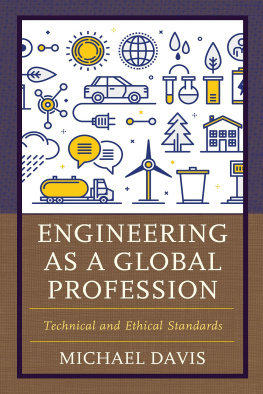
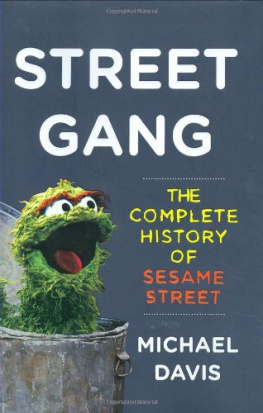

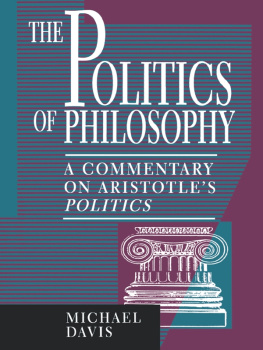
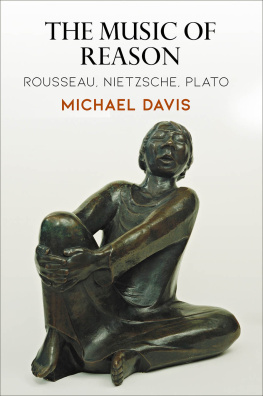

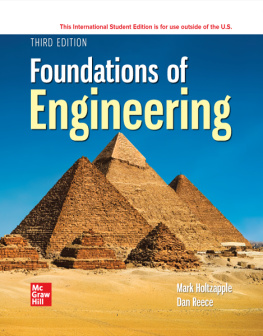
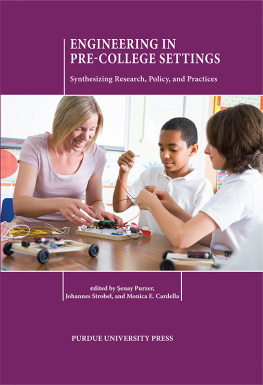
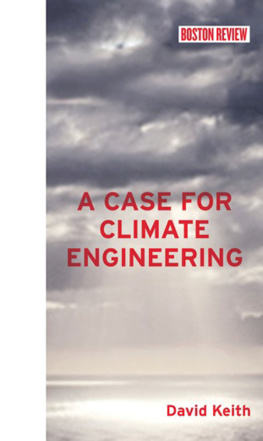
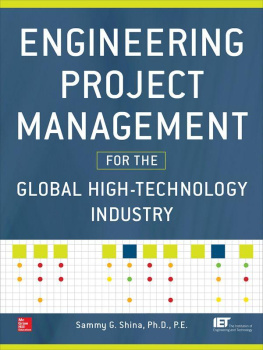
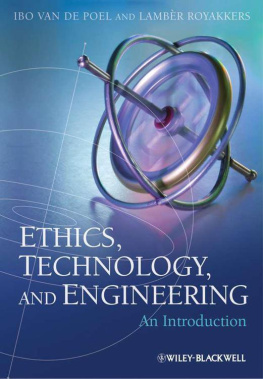
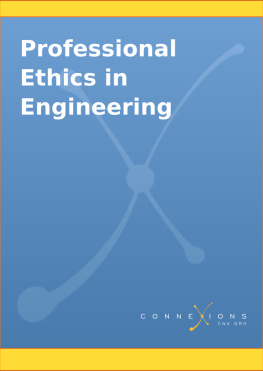

 The paper used in this publication meets the minimum requirements of American National Standard for Information SciencesPermanence of Paper for Printed Library Materials, ANSI/NISO Z39.48-1992.
The paper used in this publication meets the minimum requirements of American National Standard for Information SciencesPermanence of Paper for Printed Library Materials, ANSI/NISO Z39.48-1992.